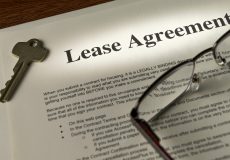Business Structure Lawyers NSW
As a consequence of ongoing tax and other law reforms, many business structures utilised in days gone by have become ineffective or inappropriate. Choosing the most appropriate business structure isn’t just a matter of deciding whether or not to incorporate a company.
In addition to providing advice on proposed business structures, we are also able to review existing structures to ensure they remain appropriate in light of changes to personal and business circumstances as well as changes to taxation and other laws.
Business Structures Explained
Choosing the right structure for your business is one of the most important decisions you will make as a manager or owner.
Here is a list of business structures to help point you in the right direction.
What is a Sole Trader?
As a sole trader (also known as sole proprietorship) of a business you are the sole business owner and you trade in your own name (e.g. Gavin Hanrahan‘s Law Firm). Because you are using your own name, you typically will not have to register a separate business name. From a legal perspective, there is no distinction between the owner and the business itself. Like any other business, sole traders can have staff under their employment. However, there is risk involved in being a sole trader because your personal assets will be at risk from any liabilities that the business incurs – this is sometimes referred to as ‘unlimited liability’.
Two of the main advantages of being a sole trader are the low start-up costs involved and the reduced regulations, in comparison to other structures. However, if the business becomes successful it usually leads to an increase in risks, responsibilities and complications. This is why so many sole traders seek legal advice as soon as their business starts to take off.
What is a Partnership?
A partnership is defined as being two or more persons (partners) engaging in business together with a view to make profit – this is sometimes referred to as a ‘strategic alliance’. While partnerships don’t legally have to be equal for the partners involved, all partners share the responsibilities and risks involved in running the business.
If you engage in a partnership you will typically need to register a business name. Partnerships should ideally have a Deed (Partnership Agreement – PA) that states clearly the obligations and rights of each partner. This document is governed by the Partnership Act. For this reason, and many others, people looking to engage in a partnership often seek legal advice.
Partnerships can be formed using verbal agreements, which usually occur when friends enter into partnerships with each other, however in these cases the law assumes everything is shared equally, from profits to losses. As a result, when complications arise, it can be difficult for the partners to come to an agreement and maintain their relationship.
Therefore, we recommend always seeking legal advice before entering into a partnership to avoid any disputes in the future.
Note: A partnership is not a joint venture. See our page on joint venture agreements for more information.
What is a Company?
A company (proprietary limited company) is the most common business structure adopted by businesses in Australia. A company is defined as being a separate legal entity from you, meaning the company will have its own assets (property, etc) and liabilities. The company has its own name and management (directors and shareholders) will use it to enter into agreements. When you start a company there will be directors, company secretaries and shareholders of that company.
All companies need to be registered through ASIC (the Australian Securities and Investments Commission). Following this, the company will be assigned a unique Australian company number under the Corporations Act.
Therefore, should any complications arise, the company is liable, not you as a Director or a shareholder. However, if complications or disputes arise, as a result of misconduct by directors, they may become liable instead of the company. Similarly, the company is able to take legal action against others for any loss it has suffered. In these circumstances companies often need to seek legal advice.
What is a Trust?
A Trust is a legal structure by which you can own or operate a business. The Trust is responsible for holding income, assets or property for the benefit of others (beneficiaries), who are then referred to as ‘beneficiaries’. A trustee runs the Trust and could be an individual person, a number of people or a company. It is important to appreciate how a Trust can operate and who controls the Trust. There are a variety of Trusts but, in regards to business structures, the two most common are a Unit Trust and a Discretionary Trust.
Overall
If you are looking to start a business, or are thinking about restructuring your existing business, we recommend always seeking professional legal advice before deciding on a business structure. There are a number of important factors to consider and many of these can lead to complications in the future if they are overlooked.
Reference > NSW Government Fair Trading – Business Structures
Related Article > Converting an Incorporated Association into a Company Limited by Guarantee
A final note on Business Structures
Do you control your business?
Many business owners operate their business using a structure they don’t really understand.
Understanding the legal effect of your business structure is critical to you making effective plans about your business. If you don’t have a full understanding you could inadvertently transfer ownership or control of the business to the wrong hands.
There are a few critical times when business owners should get expert legal advice about their business structure – when starting out, selling or transferring a share in the business, a business partner dies or becomes unable to work, or you or a business partner becomes involves in a Family Law dispute.
On many occasions, it has been my experience that business owners have not understood the effect of business structure on their ownership, control, finances of past transactions they have made… the result being that they don’t own or control what they thought they owned and controlled, and their plans for early retirement are destroyed.
If you are a business owner and you can’t answer these questions, you may not understand your business structure as well as you should.
- How do I own my business?
- How do I have control in my business?
- As a partner or director, what are my obligations and entitlements?
- How does tax, both income and capital gain, operate within my business structure?
- If you use a trust: What entitlement do I have to the trust’s capital and income? What are the obligations of the Trustee?
Need timely and professional legal advice for your business?
Our sounding board service may be what you’re looking for
 Liability limited by a scheme approved under Professional Standards Legislation
Liability limited by a scheme approved under Professional Standards Legislation
































